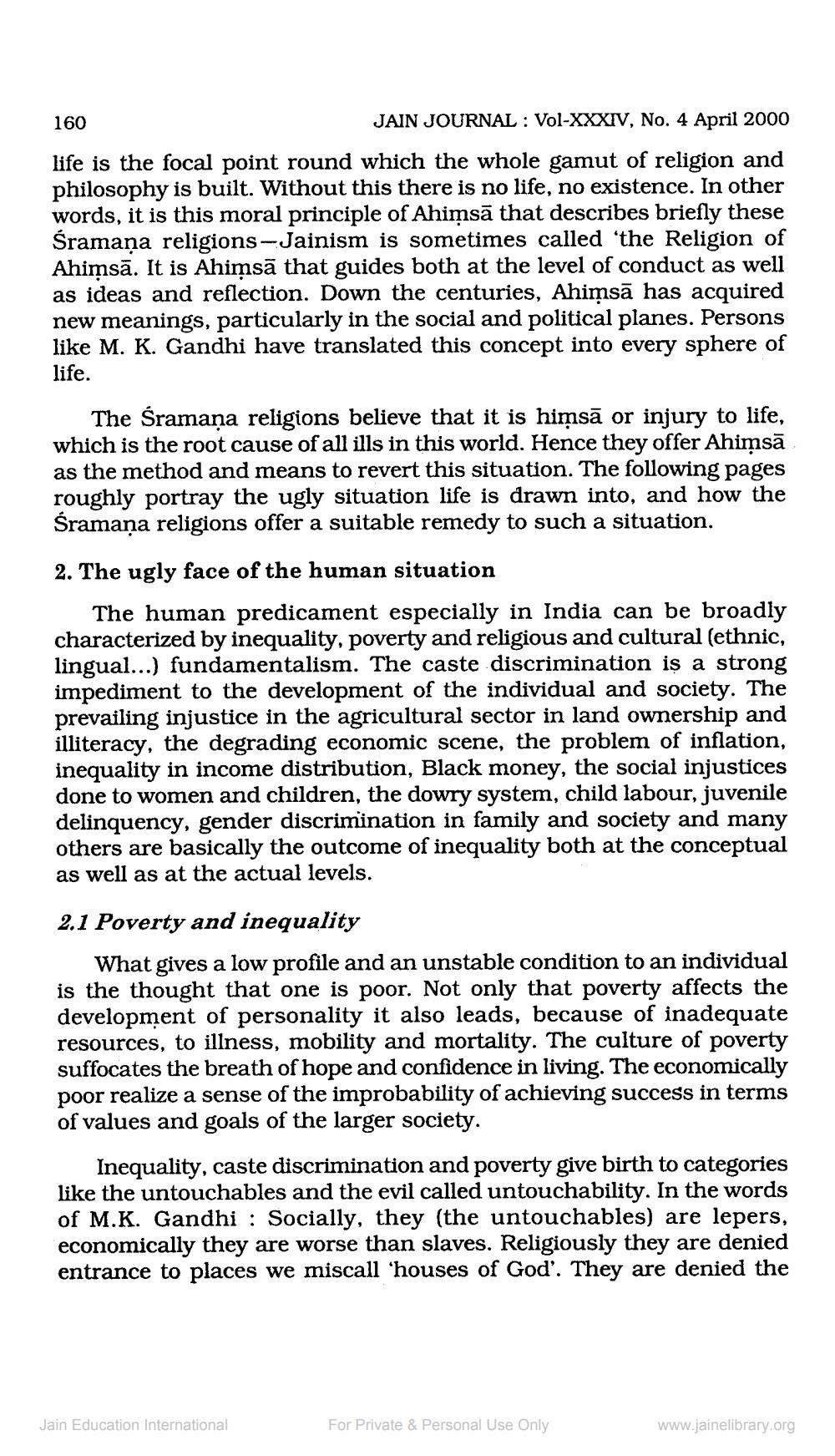Book Title: Jain Journal 2000 04 Author(s): Jain Bhawan Publication Publisher: Jain Bhawan Publication View full book textPage 4
________________ 160 JAIN JOURNAL: Vol-XXXIV, No. 4 April 2000 life is the focal point round which the whole gamut of religion and philosophy is built. Without this there is no life, no existence. In other words, it is this moral principle of Ahimsa that describes briefly these Śramana religions-Jainism is sometimes called 'the Religion of Ahimsā. It is Ahimsa that guides both at the level of conduct as well as ideas and reflection. Down the centuries, Ahimsa has acquired new meanings, particularly in the social and political planes. Persons like M. K. Gandhi have translated this concept into every sphere of life. The Śramana religions believe that it is himsā or injury to life, which is the root cause of all ills in this world. Hence they offer Ahimsā as the method and means to revert this situation. The following pages roughly portray the ugly situation life is drawn into, and how the Śramana religions offer a suitable remedy to such a situation. 2. The ugly face of the human situation The human predicament especially in India can be broadly characterized by inequality, poverty and religious and cultural (ethnic, lingual...) fundamentalism. The caste discrimination is a strong impediment to the development of the individual and society. The prevailing injustice in the agricultural sector in land ownership and illiteracy, the degrading economic scene, the problem of inflation, inequality in income distribution, Black money, the social injustices done to women and children, the dowry system, child labour, juvenile delinquency, gender discrimination in family and society and many others are basically the outcome of inequality both at the conceptual as well as at the actual levels. 2.1 Poverty and inequality What gives a low profile and an unstable condition to an individual is the thought that one is poor. Not only that poverty affects the development of personality it also leads, because of inadequate resources, to illness, mobility and mortality. The culture of poverty suffocates the breath of hope and confidence in living. The economically poor realize a sense of the improbability of achieving success in terms of values and goals of the larger society. Inequality, caste discrimination and poverty give birth to categories like the untouchables and the evil called untouchability. In the words of M.K. Gandhi Socially, they (the untouchables) are lepers, economically they are worse than slaves. Religiously they are denied entrance to places we miscall 'houses of God'. They are denied the Jain Education International For Private & Personal Use Only www.jainelibrary.orgPage Navigation
1 2 3 4 5 6 7 8 9 10 11 12 13 14 15 16 17 18 19 20 21 22 23 24 25 26 27 28 29 30 31 32 33 34 35 36 37 38 39 40 41 42 ... 47
